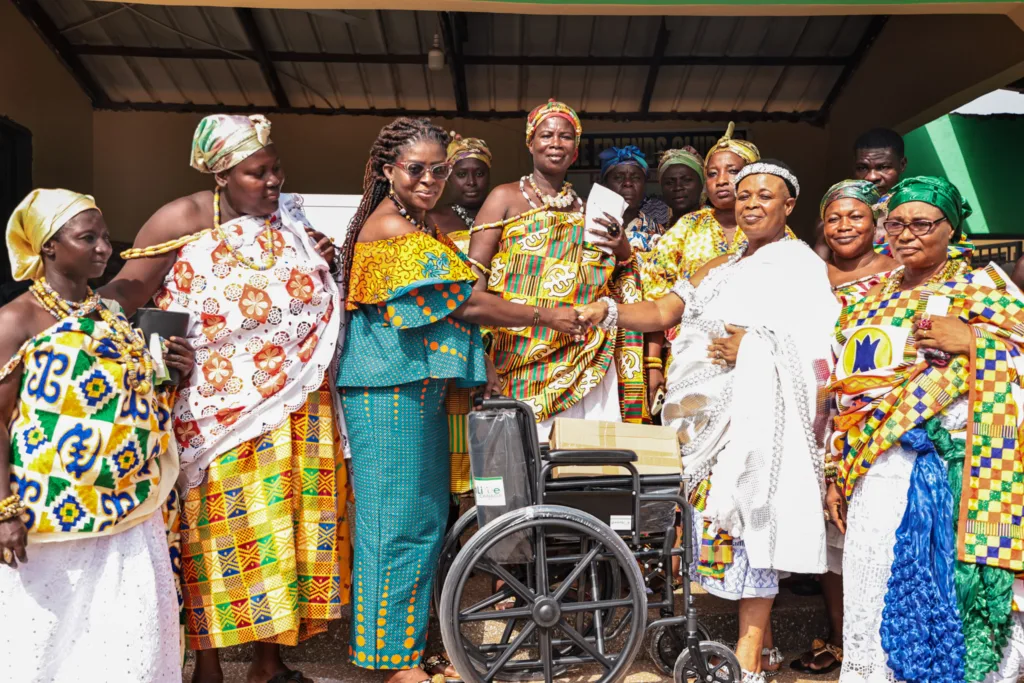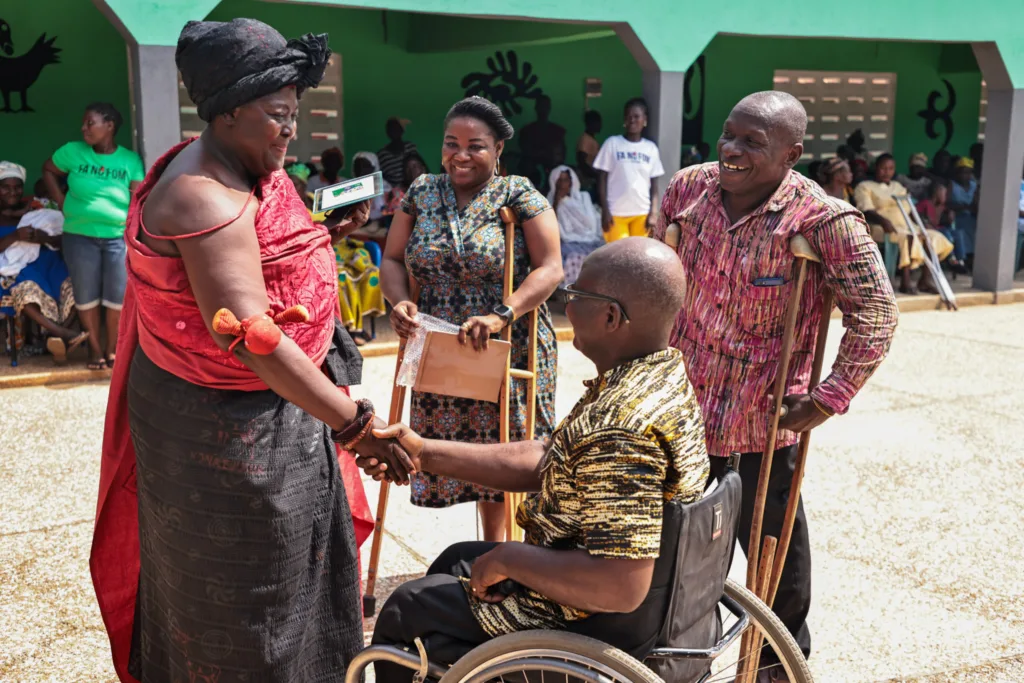The Church of Jesus Christ of Latter-day Saints has provided a range of items to persons with disabilities (PWDs) at Ekumfi in the Central Region, prioritizing women with disabilities and mothers caring for children with special needs.
This initiative echoes the International Women’s Day theme: ‘Count Her In, Inspire Inclusion’ by aiming to empower marginalized communities and uplift the underprivileged.
In an interview, the Area Seventy of the Church of Jesus Christ of Latter-Day Saints, Elder Anthony Kaku, stressed the pivotal role of aid and assistance in fostering stronger, more resilient communities while reiterating the church’s commitment to supporting those in need. “When the community asked for our help, we looked and realized we could afford to help them, so we did. We came here to support those who are in need,” he said.
He further explained that the donation included a variety of essential items. They include 30 wheelchairs and 10 pairs of crutches which will be helpful for those with mobility challenges; 300 packs of sanitary pads will address hygiene needs; school supplies included 1,000 notebooks, along with 1,000 pens; food items were 200 bags of 5-kg bags of rice, 17 cartons of cooking oil, five bags of gari, and three bags of beans.
“This is something we do throughout the country. I have attended several of these things that we have done, so we look at how they are going to help the community. We give what will benefit the communities and institutions. Cape Coast, for example, we gave some to the police, we gave them things to work with, and there are many other institutions that I have attended,” Elder Kaku revealed.

He emphasized the importance of community support arguing that if everyone contributes even a little to help those in need, the burden on the government would lessen, adding that mutual aid is a cornerstone of a strong society.
Chief Executive Officer (CEO) of Legendary Capital Events/Kidzplace, Eunice Smart Kwainoe, who received some of the items on behalf of the beneficiaries highlighted the challenges faced by women in Ekumfi, whilst highlighting the importance of investing in education, healthcare, and economic opportunities to unlock their full potential.
“Despite these countless accomplishments of women, we must also acknowledge the challenges that many of our sisters face each day. In Ekumfi, as in many other parts of the world, women encounter barriers that prevent them from actualizing their full participation in society, such as limited access to education, healthcare, economic opportunities, and decision-making roles. Additionally, cultural norms and gender stereotypes often constrain the potential of our women, limiting our ability to thrive and succeed,” she noted.
She advocated for a two-pronged approach to girls’ empowerment – local action and education. By investing in local initiatives and equipping girls with skills through education and training, they will gain the tools to reach their full potential and uplift their communities.
Mrs. Kwainoe also highlighted two key areas for women’s empowerment, namely, healthcare and economic opportunity. She said prioritizing women’s health through accessible services and fostering economic participation through entrepreneurship or employment is crucial.

She also emphasized dismantling gender stereotypes to create a society that respects and values women’s contributions.
Speaking to the Chairman of the Center for Employment for PWDs and the Chamber for Entrepreneurs with Disabilities, Alex Kojo Tetteh called on authorities to ensure that public places are friendly for people with disabilities, enabling them to access employment opportunities and contribute meaningfully to society.
“It is very difficult for people with disabilities to access employment centers because the centers are not assessable, they are not friendly, public places are not friendly, and hospitals are not friendly. We call on every development-oriented person, to ensure that our public places are accessible and friendly for persons with disabilities, so the disabled people will also be able to work to earn income,” he said.
He added that when persons with disabilities (PWDs) work and are able to generate income, they become self-reliant and support the development of their communities. Mr. Tetteh whilst thanking the Church, said the items would “really benefit us all.”
Source: Ghana/Starrfm.com.gh/103.5FM




